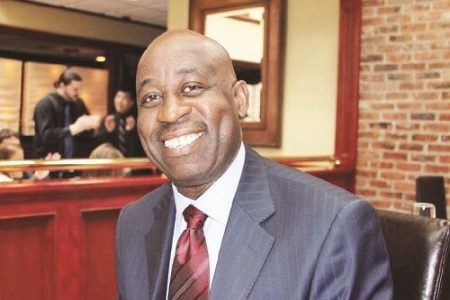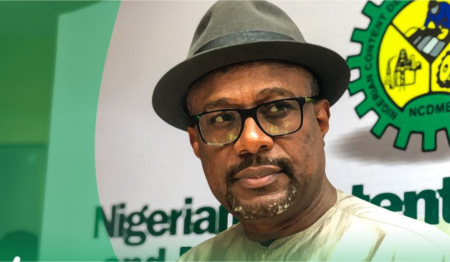 23 February 2013, Sweetcrude, Abuja — The Bureau of Public Enterprises, BPE, Thursday, appealed to electricity consumers to accept an “impending increase in tariff” due to ongoing reforms in the sector.
23 February 2013, Sweetcrude, Abuja — The Bureau of Public Enterprises, BPE, Thursday, appealed to electricity consumers to accept an “impending increase in tariff” due to ongoing reforms in the sector.
Mr. Benjamin Dikki, the acting Director-General of BPE, made the appeal at the signing of transaction and industry agreements of PHCN successor companies with the preferred bidders.
Dikki said the initial short-term increase in tariffs would result from the gradual removal of government subsidies with the private sector takeover of the electricity companies.
‘Tariffs’ll fall’
He said: “I assure you that the tariffs are bound to fall in the not-too-distant future and I remind us of the dramatic crash in the price of SIM cards in the telecomms sector. SIM cards were being sold for up to N50,000 initially, today, due to competition and investments in the industry, SIM cards now come with free air time.”
Dikki, who spoke strongly in defence of the short-term increase, said it was nothing compared to the prices currently paid by electricity consumers for fuel generators.
He described the signing of the industry agreements with the preferred bidders as a “landmark” in the present administration’s effort to revamp the power sector.
Dikki hailed President Goodluck Jonathan for his “personal intervention” in the sector and appealed for a similar gesture in the transport, oil and gas sectors.
Handover procedure
He said government had proposed that arrangements be put in place to allow the preferred bidders to monitor activities of the successor companies without taking them over before full payment.
According to him, the arrangement will give the prospective core investors the “comfort that there will not be any material adverse effects on the assets they are taking over.
He added that BPE would engage the bidders and CEO of the successor companies to finalise arrangements on the proposal. Dikki also assured the preferred bidders that the Federal Government would fund the Transmission Company of Nigeria, TCN, to improve its capacity to evacuate power.
“I am aware that arrangements have also reached an advanced stage for the Minister of Power to inaugurate the TCN board and for Manitoba Hydro International to fully take charge of running TCN,” he added.
TCN Vice Chair reacts
In his remarks, Alhaji Haruna Sambo, Vice Chairman of the Technical Committee of the National Council on Privatisation, NCP, said government had tried to maintain international best standards in the sale of the electricity companies.
He recalled that on October 29, 2012, NCP approved five preferred bidders for the generation companies, including Geregu, Ughelli, Sapele, Kainji, Shiroro and Egbin Power Plc.
Sambo said that NCP also approved 10 preferred bidders for distribution companies in Abuja, Benin, Enugu, Eko, Ibadan, Ikeja, Jos, Kano, Port Harcourt and Yola.
Bidders’ payment
According to him, all the firms that signed the 13 legal and industry documents at the ceremony posted a bank guarantee for 15 percent of the transaction value within the stipulated period.
Sambo said that 15 days after the signing of the Sale and Purchase or Shareholders agreements, the bidders would be expected to make a down payment of 25 percent of the share purchase price.
He said 90 days after signing the agreements, they would be required to pay the outstanding 75 per cent of the share purchase price to complete the transaction.
He stressed that it was only after payment of the full purchase consideration that the successor companies would be handed over to the preferred bidders. Also speaking, Alhaji Abdulkadir Musa, Permanent secretary, Ministry of Petroleum Resources, assured the prospective investors of availability of gas and regular supply to the power companies.
“The gas master plan was initiated to address this and the Gas Aggregation Company of Nigeria limited was established to manage the intervention processes in the industry” he said. Mr Tony Elumelu, Chairman of Transcorp, one of the preferred bidders for the generation companies, told reporters that the transaction had demonstrated the need for Public Private Partnership (PPP) to ensure economic prosperity. On the issue of electricity tariff, Elumelu said that providing steady power in the country far outweighed the issue of tariff.
“I think cost is one thing but the more important thing is the availability of power. Today the total cost of power in Nigeria is very high, you have generators, diesel, air pollution and cancer is on the rise in Nigeria because the air around us is polluted. If you factor the economic and social costs and the fact that businesses are not doing well, we can do a lot better if we have constant electricity,” he said Under the privatisation exercise, the Federal Government will sell 11 distribution and six generation companies unbundled from the PHCN to private investors. The Federal Government will, however, retain full control of the transmission services through the TCN.



